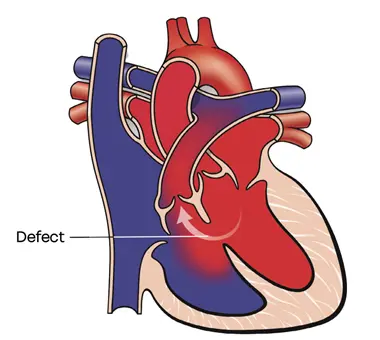
VT, Ventricular tachycardia or V tach is an abnormal rapid heart rhythm originating in the lower chamber of the heart i.e. the ventricles. If the VT persists, then it can cause decreased blood flow from the heart to the body and can cause dizziness, palpitations and also unconsciousness. If not treated immediately, it is a fatal condition. If persistent it can degenerate into ventricular fibrillation.

Non Sustained Ventricular Tachycardia - this lasts for less than 30 seconds and does not cause cardiovascular compromise in the form of drop in blood pressure.
Sustained Ventricular Tachycardia - this lasts for more than 30 seconds or causes hemodynamic compromise or needs immediate medical intervention.
Depending on the origin of VT in the lower chambers, it can be called RVOT (right ventricular outflow tract) VT, Fascicular VT, Apical VT, etc.
Ventricular Tachycardia is very rarely asymptomatic.
Symptoms can be of
Causes of Ventricular Tachycardia
Secondary to Myocardial infarction or heart attack. Secondary to depression of left ventricular function.
Medications
Antiarrhythmic drugs like amiodarone, sotalol, lidocaine etc. may be needed for acute conversion to sinus rhythm in the form of chemical cardioversion. Other medications like beta blockers may be needed in addition to above drugs for prolonged treatment.
Electric Cardioversion
If sustained Ventricular Tachycardia, electric cardioversion in the form of DC (direct current) shock is needed to revert to baseline rhythm.
EP Study and Ablation
This procedure basically helps to map out the source from where the Ventricular Tachycardia originates in the ventricles and then we subsequently ablate the focus and prevent or reduce the recurrence of the same. This procedure is done commonly via the groins.
If left untreated, it can cause cardiovascular compromise, unconsciousness, convulsions and eventually death. VT can degenerate into Ventricular fibrillation i.e. a chaotic rhythm which stops the flow of blood from the heart as the heart is not able to pump at all.
